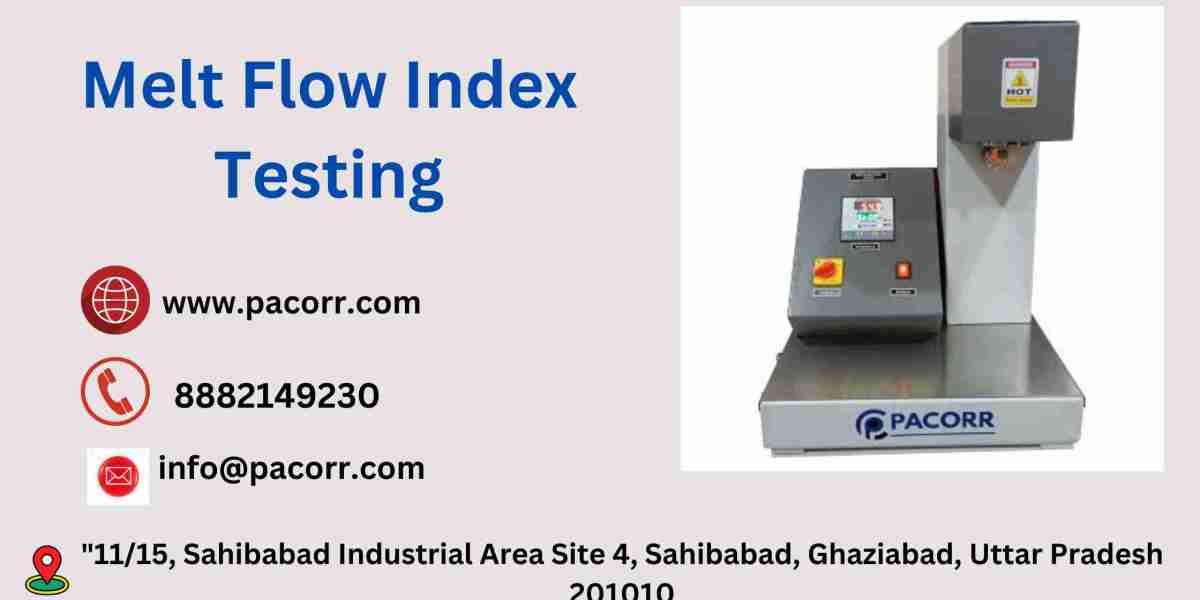Understanding the Melt Flow Index Tester: A Comprehensive Guide
In today's highly competitive manufacturing environment, ensuring product quality and consistency is paramount. One crucial aspect of this is understanding the properties of materials used in production. For manufacturers working with thermoplastics, the Melt Flow Index (MFI) is a critical parameter. The Melt Flow Index Tester, a specialized instrument, provides valuable insights into the flow characteristics of these materials. This article delves into the importance of the MFI, how the Melt Flow Index Tester works, and its applications across various industries.
What is the Melt Flow Index?
The Melt Flow Index (MFI) measures the ease of flow of melted thermoplastic materials. It is defined as the weight of the polymer that flows through a capillary of a specific diameter and length under a prescribed pressure and temperature over a set period. The MFI value helps in determining the viscosity of the polymer, which is crucial for understanding its processing behavior.
Importance of MFI in Manufacturing
- Quality Control: The MFI provides a quick and reliable means to monitor the consistency of polymer batches. Consistent MFI values indicate uniform material properties, which is essential for producing high-quality products.
- Material Selection: Different applications require polymers with specific flow characteristics. The MFI helps manufacturers select the appropriate material for their specific needs.
- Process Optimization: Knowing the MFI of a material allows manufacturers to optimize their processing conditions, such as temperature and pressure, to achieve the desired product quality.
How Does the Melt Flow Index Tester Work?
The Melt Flow Index Teste operates by heating a sample of the polymer to a specified temperature. The melted sample is then extruded through a die using a defined weight. The extruded material's weight is measured over a set period, typically 10 minutes, to calculate the MFI.
Key Components of a Melt Flow Index Tester
- Heater: The heater raises the polymer sample to the test temperature.
- Die: The die has a precise diameter and length through which the polymer is extruded.
- Piston and Weight: The piston, under a defined weight, pushes the molten polymer through the die.
- Timer: A timer ensures the test duration is consistent.
Applications of the Melt Flow Index Tester
The Melt Flow Index Testing is used across various industries to ensure the quality and performance of thermoplastic materials. Some of the key applications include:
- Plastics Manufacturing: Manufacturers of plastic products, such as bottles, films, and automotive parts, use MFI testing to ensure their products meet the required specifications.
- Quality Assurance in Polymer Production: Polymer producers use MFI testing to monitor batch consistency and adjust their production processes as needed.
- Research and Development: R&D labs use MFI testing to develop new materials with desired flow characteristics for specific applications.
Advantages of Using the Melt Flow Index Tester
- Efficiency: The Melt Flow Index Teste provides quick and reliable measurements, allowing for efficient quality control and material selection processes.
- Cost-Effective: By ensuring material consistency and optimizing production processes, the MFI tester helps reduce waste and improve overall production efficiency.
- Versatility: Suitable for a wide range of thermoplastic materials, the MFI tester is a versatile tool for various industries.
Conclusion
The Melt Flow Index Tester is an indispensable tool for manufacturers working with thermoplastic materials. By providing critical information about the flow characteristics of polymers, it helps ensure product quality, optimize manufacturing processes, and aid in the development of new materials. As industries continue to demand higher quality and consistency, the importance of MFI testing will only grow, making the Melt Flow Index Testing a vital component in the manufacturing landscape.
FAQ
Q1: What is the Melt Flow Index (MFI)? A1: The Melt Flow Index (MFI) measures the ease of flow of melted thermoplastic materials, providing insights into their viscosity and processing behavior.
Q2: Why is MFI important in manufacturing? A2: MFI is crucial for quality control, material selection, and process optimization, ensuring consistent product quality and efficient production processes.
Q3: How does the Melt Flow Index Tester work? A3: The tester heats a polymer sample to a specified temperature, then extrudes it through a die using a defined weight. The weight of the extruded material over a set period is measured to calculate the MFI.
Q4: What industries use the Melt Flow Index Tester? A4: The tester is used in plastics manufacturing, polymer production, and research and development to ensure material quality and performance.
Q5: What are the advantages of using the Melt Flow Index Tester? A5: The tester offers quick and reliable measurements, cost-effectiveness by reducing waste and improving efficiency, and versatility for a wide range of thermoplastic materials.



